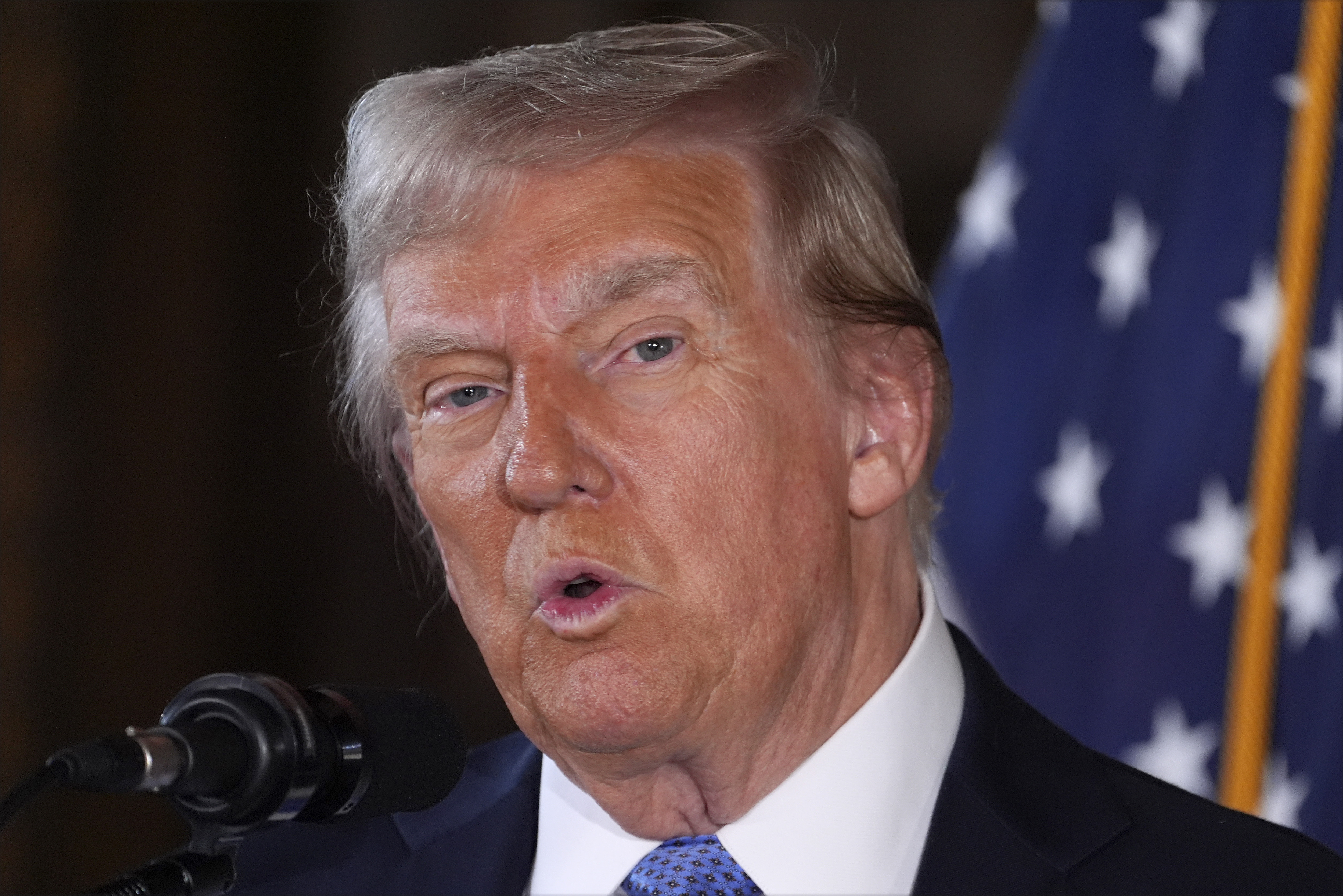
An explosion tore through a cafe in Russia’s second-largest city Sunday, killing a well-known military blogger and strident supporter of the war in Ukraine. Some reports said a bomb was embedded in a bust of the blogger that was given to him as a gift.
Russian officials said Vladlen Tatarsky was killed as he was leading a discussion at the cafe on the bank of the Neva River in the historic heart of St. Petersburg. Some 30 people were wounded in the blast, Russia's Health Ministry reported.
Russian media and military bloggers said Tatarsky was meeting with members of the public when a woman presented him with a box containing a bust of him that apparently blew up. A patriotic Russian group that organized the event said it had taken security precautions but acknowledged that those measures “proved insufficient.”
In remarks recorded on video, a witness said that a woman who identified herself as Nastya asked questions and exchanged remarks with Tatarsky during the discussion.
Get Tri-state area news delivered to your inbox.> Sign up for NBC New York's News Headlines newsletter.
The witness, Alisa Smotrova, quoted Nastya as saying she had made a bust of the blogger but that guards asked her to leave it at the door, suspecting it could be a bomb. Nastya and Tatarsky joked and laughed. She then went to the door, grabbed the bust and presented it to Tatarsky.
He reportedly put the bust on a nearby table, and the explosion followed. Smotrova described people running in panic, some hurt by shattered glass and covered in blood.
Russia's Interfax news agency reported that a St. Petersburg woman, Darya Tryopova, was arrested on suspicion of involvement in the bombing. It said that she had been previously detained for taking part in anti-war rallies.
U.S. & World
A video posted on Russian messaging app channels showed the cafe after the explosion. Tables and chairs were broken and stained by blood, and shards of glass littered the floor.
Russian media said investigators were looking at the bust as the possible source of the blast but have not ruled out the possibility that an explosive device was planted in the cafe before the event.
Russia’s Investigative Committee, the state's top criminal investigation agency, opened a probe on charges of murder.
No one publicly claimed responsibility, but military bloggers and patriotic commentators immediately pointed a finger at Ukraine and compared the bombing to the killing last August of Darya Dugina, a nationalist TV commentator. She was killed when a remotely controlled explosive device planted in her SUV blew up as she was driving on the outskirts of Moscow.
Russian authorities blamed Ukraine’s military intelligence for Dugina’s death, but Kyiv denied involvement.
Reacting to the latest incident, Russian Foreign Ministry spokeswoman Maria Zakharova said Tatarsky’s activities “have won him the hatred of the Kyiv regime” and noted that he and other Russian military bloggers long have faced Ukrainian threats.
Dugina's father, Alexander Dugin, a nationalist philosopher and political theorist who strongly supports the invasion of Ukraine, hailed Tatarsky as an "immortal" hero who died to save the Russian people.
“There must be no talks with the terrorists other than about their unconditional surrender,” Dugin said. “A victory parade must take place in Kyiv.”
Since the fighting in Ukraine began Feb. 24, 2022, Ukrainian authorities have refrained from claiming responsibility for various fires, explosions and apparent assassinations in Russia. At the same time, officials in Kyiv have jubilantly greeted such events and insisted on Ukraine’s right to launch attacks in Russia.
A top Ukrainian government official cast the explosion that killed Tatarsky as part of internal turmoil.
“Spiders are eating each other in a jar,” Ukrainian presidential adviser Mykhailo Podolyak wrote in English on Twitter. “Question of when domestic terrorism would become an instrument of internal political fight was a matter of time.”
Tatarsky, who had filed regular reports from Ukraine, was the pen name for Maxim Fomin, who had accumulated more than 560,000 followers on his Telegram messaging app channel.
Born in the Donbas, Ukraine’s industrial heartland, Tatarsky worked as a coal miner before starting a furniture business. When he ran into financial difficulties, he robbed a bank and was sentenced to prison. He fled from custody after a Russia-backed separatist rebellion engulfed the Donbas in 2014, weeks after Moscow’s annexation of Ukraine's Crimean Peninsula. Then he joined separatist rebels and fought on the front line before turning to blogging.
Tatarsky was known for his blustery pronouncements and ardent pro-war rhetoric.
After the Kremlin's annexation of four regions of Ukraine last year that most of the world rejected as illegal, Tatarsky posted a video in which he vowed: “That’s it. We’ll defeat everybody, kill everybody, rob everybody we need to. It will all be the way we like it. God be with you.”
Military bloggers have played an increasingly prominent and influential role in the flow of information about Russia’s invasion of Ukraine. They have almost universally championed the goals of the campaign but at times criticize Russian military strategy and tactical decisions.
At the same time, the Kremlin has squelched alternative voices opposing the war by shutting down news outlets, limiting the public’s access to information and jailing critics.



